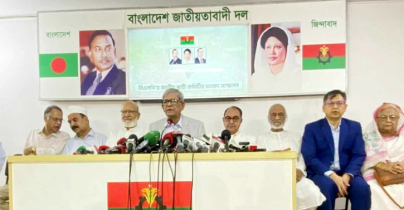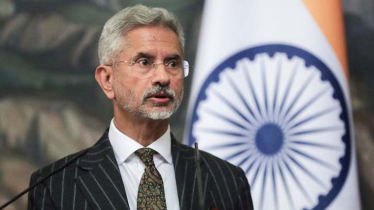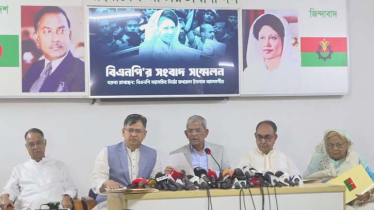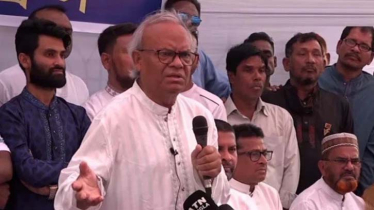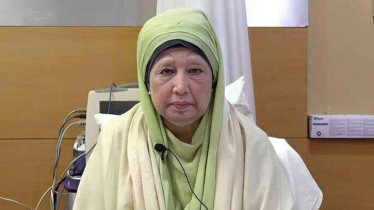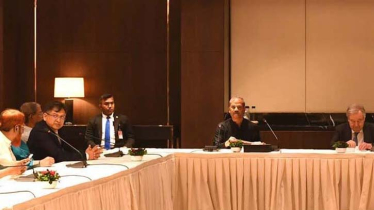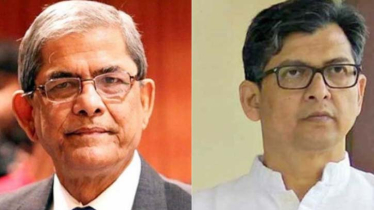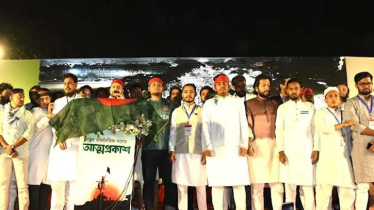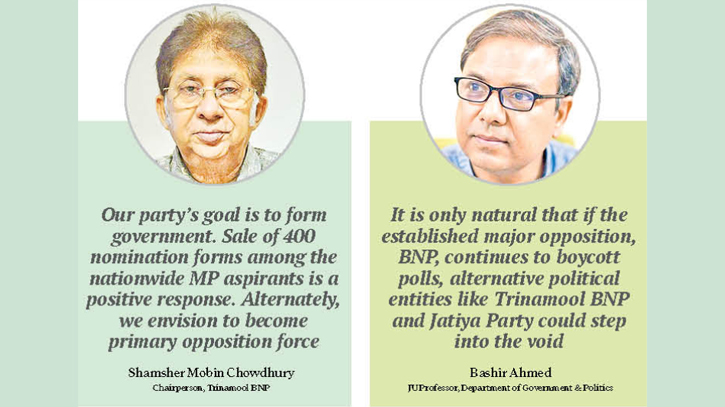
Photo : Messenger
In a political landscape marked by strategic maneuvers and shifting alliances, a new political party named Trinamool BNP has emerged on the scene with ambitious plans to contest the upcoming 12th parliamentary elections slated for January 7.
As the country’s traditional main opposition, BNP (Bangladesh Nationalist Party) announces its boycott, Trinamool BNP aims to capitalise on the void and position itself as the primary opposition force in Bangladeshi politics.
For years, BNP has been advocating for general elections under the auspices of a neutral caretaker government, striving for polls that are free, fair, and acceptable to all. Central to their demands is the resignation of incumbent Prime Minister Sheikh Hasina, as they contend that genuine electoral transparency is unattainable under the current administration.
In a surprising twist, Trinamool BNP has garnered support from the ruling party Awami League (AL), agreeing to participate in the upcoming elections under the governance of Sheikh Hasina.
This move, vehemently opposed by the Khaleda Zia-led BNP, has raised eyebrows and shifted the political dynamics in the country.
With its core objective of strengthening grassroots democracy, Trinamool BNP has already distributed over 400 nomination forms among its aspiring Members of Parliament. This unprecedented response has left many political observers in Bangladesh astonished, which also underscores the party's potential impact on the upcoming polls.
Political analysts speculate that if BNP continues its trend of boycotting consecutive elections, Trinamool BNP may gradually assume the role of the country's major opposition party, influencing the political landscape.
Bashir Ahmed, a political analyst and professor at Jahangir University's Department of Government and Politics, has expressed concern over BNP's political strategy, describing it as detrimental to the essence and purpose of a political party.
He remarked, "A political party cannot serve the people without participating in elections. BNP's consistent boycotts are self-destructive for a political entity."
Responding to queries regarding Trinamool BNP's potential ascent to the main opposition role, Ahmed noted, "It is only natural that if the established major opposition, BNP, continues to boycott polls, alternative political entities like Trinamool BNP and Jatiya Party could step into the void."
When approached for comment, Taimur Alam Khandaker, the Secretary General of Trinamool BNP and a former BNP leader, expressed optimism regarding the party's future, emphasising their commitment to bolstering democracy in Bangladesh.
Khandaker outlined the party's ambitious plans, stating, “We are gearing up to field 300 candidates in the upcoming elections. Our strategic preparations are underway, and we are poised to contribute to restoring political stability by fostering a healthy political environment. Just like the Trinamool Congress in India, we aspire to become a major opposition force in Bangladesh in the near future."
Trinamool BNP's chairperson, Shamsher Mobin Chowdhury, also expressed optimism about the party's future. “Sale of 400 nomination forms among the nationwide MP aspirants is a positive response.”
He anticipates victory in the upcoming general elections, emphasising the party's goal to form the government. Alternatively, failing to secure victory, Chowdhury envisions Trinamool BNP becoming the primary opposition force in Bangladesh.
Previously, Trinamool BNP's senior leaders convened with Prime Minister Sheikh Hasina at her official residence, Ganabhaban, on November 20. They provided assurance to the premier regarding their active participation in the January 7 general elections, utilising their party symbol, the 'Golden Fibre.'
Speaking about the meeting, Trinamool BNP Secretary General Taimur Alam Khandaker informed reporters that during the Sunday night meeting, the prime minister reiterated her commitment to ensuring a fair and participatory election.
Trinamool BNP insiders reveal that numerous leaders from both the ruling party and BNP, along with prominent figures nationwide, have obtained nomination forms from their party.
Besides, in the 2018 general elections, the ruling Awami League reserved around 70 seats for its allies, including Jatiya Party.
Earlier on 15 November, the Election Commission announced the polls schedule for the 12th Jatiya Sangsad election that is to be held on 7 January.
Political parties will be able to submit nominations for candidacies till 30 November.
The Election Commission will scrutinise the nomination submissions from 1-4 December. Appeals against the nominations can be submitted from 6-15 December and nominations need to be withdrawn by 17 December.
Political parties will be able to distribute symbols within 18 December and the election campaign will officially kick off on 18 December. The campaign duration will end at 8:00am on 5 January.
Messenger/Disha

